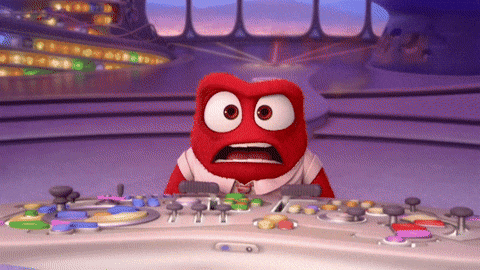Fifty possible reasons you’re doubting your relationship (yes, 50!)
We humans are a walking mess of thought, feeling, sensing, interacting, analysing, contradictory and conflicting thoughts, feelings and behaviours.
We therefore get suuuper stuck when we question our relationship. (Hands up you folks who get stuck in analysis paralysis!)
We try to find a single cause and explanation for our doubt and a clear action to ‘fix it’.
But it isn’t always as straight forward as that, because we aren’t machines.
It’s not as simple as ‘they are right for me, or wrong for me’ or ‘I love them or I don’t love them’.
And if you stick with this polarity thinking about your relationship - you won’t resolve your doubts in the long term.
They’ll keep cropping up as you navigate your current or future relationships.
So here’s 50 possible reasons you’re doubting your relationship, based on my experience coaching clients on this topic - along with some articles that will help you understand, and tackle this doubt!
You can’t envision this person in the future you’d imagined for yourself
You’re comparing yourself to other people’s relationships
You feel a pressure to be a certain kind of person for your partner, and you’re not sure you can sustain it any more
You’re not in touch with how you really feel (is it normal to follow your heart?)
You are going through a period of change which is making you question your life
You doubt yourself in all areas of your life
You worry constantly about what the future will bring
You don’t trust yourself to make decisions
You have a deep rooted belief that you don’t deserve love
You’re scared of the relationship changing and failing - read more here about what it means to ‘fail’ at relationships
You’re not sure what counts as ‘settling’ and what’s a legitimate desire for more
You don’t know the other person as well as you thought you did
Both, or one of you, is changing over time and you don’t know what that means for your partnership
You are on a quest to always be happy, and create the perfect relationship. You’re worried you’re not doing everything ‘right’ to make it work - read more here about letting go of controlling happiness in relationships
You are denying how you really feel because you’re fearful of the outcome
You have unresolved conflict or hurt from your partner (or previous partners) in the past
You don’t know who you really are (do you need to be single to know yourself?)
You create assumptions in your mind about what your partner is thinking
You’re projecting your own insecurities on to your partner and concluding they don’t really love you
Other people are making judgements about your relationship that influence what you think
You have a deep rooted belief that relationships never work
You’re worried you’re not enough for someone else
You don’t love them anymore
You want to have certainty about the future - see this post about why we control in relationships, and why it doesn’t work.
Your differences and/or similarities are too great to make it actually work
You have feelings for someone else and you’re not sure what they mean
You are putting pressure on yourself to achieve certain milestones by a certain age
You’ve both changed and you’re not sure it works anymore
You worry that they’ll cheat, or you’ll cheat, or whether monogamy is even an achievable thing?
You don’t talk openly enough to understand each other
The ‘spark’ has gone
You are uncomfortable with negative emotion. Any slight feelings of anger, upset or irritation with your partner makes you doubt your entire relationship
You expect your relationship to be the source of all your happiness
The future is uncertain and it throws up questions about your relationship
You don’t want the same things out of life
You’re scared to commit out of fear of getting hurt
You’re not sure if your relationship standards and relationship dealbreakers are too much, or too little?
You don’t know if love alone is enough to sustain your relationship
They don’t fulfil your check-list of what you want in a partner
You’re not sure you’re attracted to them anymore
You’re questioning how they feel about you
You compare yourself to them and you don’t know if you’re good enough - in this post I discuss comparison in relationships (and how it can be a good thing)
You’re not sure how to grow together
You’re scared you might one day want to leave them
You’re living a life with them you thought you wanted, and now you don’t want it
You are always striving to be better and more successful (in your career, life, relationship) - this can make relationship choices hard
You overthink every aspect of your relationship and it’s making you anxious
You’re not sure what love actually feels like
You’re scared they might leave you
You’re holding them (and/or yourself) against an unattainable standard to be perfect
Relate?
Did any of those hit you with an oompf? My guess is more than one did.
Things aren’t as simple as we think they are. It’s soooo okay if a few of these things are on your mind. In fact, it’s totally normal.
But just because it’s normal, doesn’t mean you have to stay in an exhausting place of insecurity and worry.
When you appreciate the complexity of your doubts, it becomes less about is it me or him? Is this good or bad? or Am I right or wrong?
It allows you to think about your doubt from a new angle, and find new ways to overcome it. In fact, accepting your doubt is a great place to start.
Ask a different question.
My guess is you’ve been stuck in this black and white polarity thinking of good vs bad, right vs wrong.
You can find new ways to understand and resolve your relationship doubts, if you ask yourself a different question.
Who are you being in your relationship? Read some examples of how this can help you understand yourself and your doubts better, or download your free workbook below to get the full list of questions…
Re-connect with who YOU are in your relationship
Reflect on who you’re being
Discover you at your best
Create a goal to re-connect with that you
















When this client first came to me, they were in that all-too-familiar ADHD limbo. As they put it:
"I was going through a hard time with insecurity and career, having recently learned about my late diagnosis of mixed-type ADHD. I felt inadequate at work, and unsure if I wanted to stay at my company, despite enjoying the company."